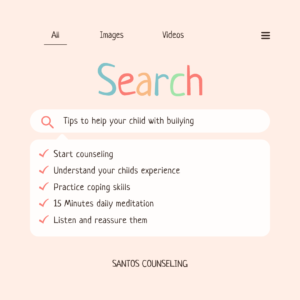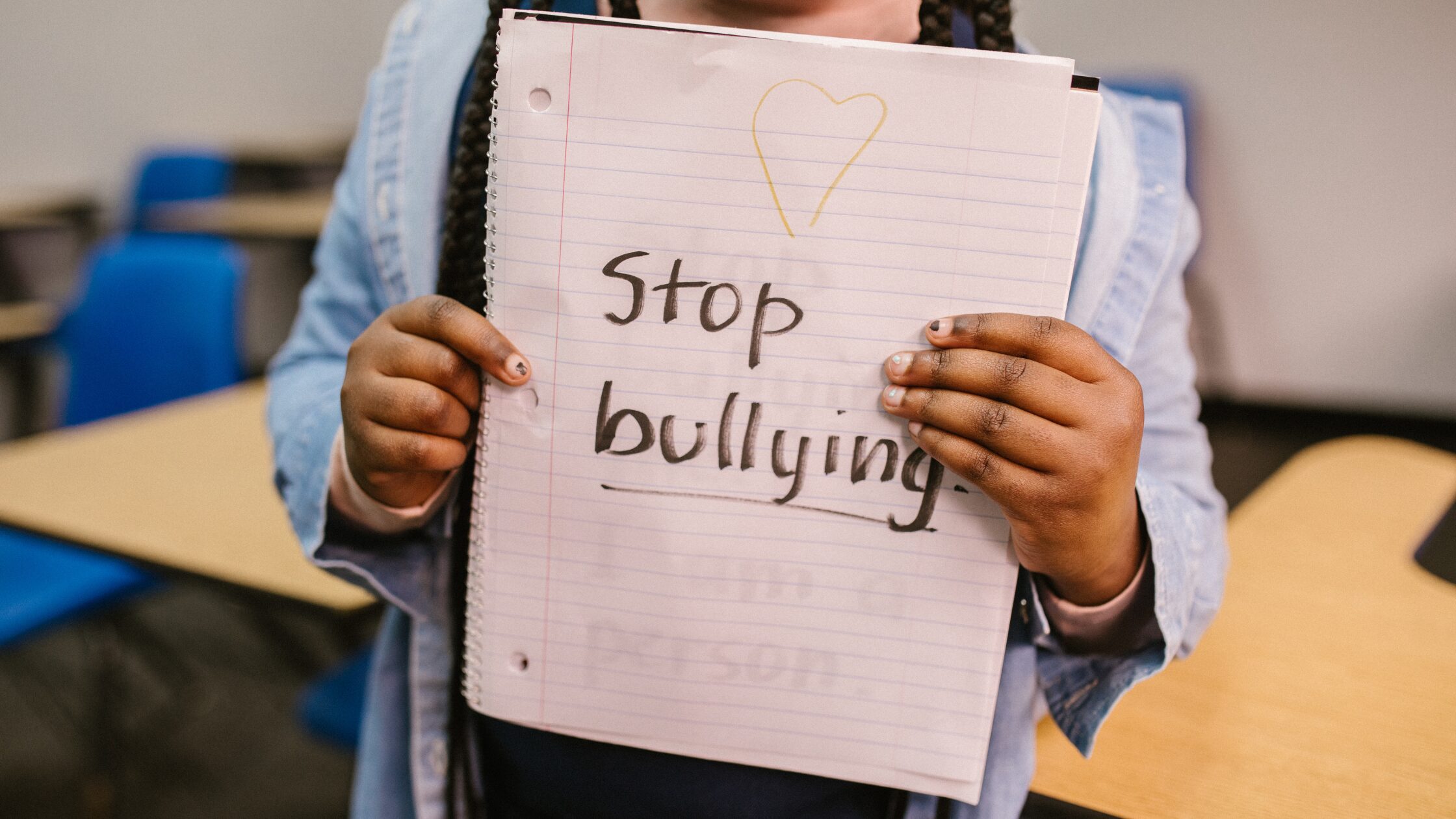How Counseling Can Help Your Child With Bullying
Is your child being bullied?
Are you on feeling unsure as to how to handle it?
Bullying is a very difficult subject to have with your child as this subject often inclines kids to feel insecure, embarrassed or sensitive to it. According to stop bullying around 19 percent of kids ages 12 to 18 experience bullying.
As parents it’s vital to know the types of bullying that your child can be exposed to as well as the prevalence of bullying in specific settings. Stop bullying found that bullying can take place in the classroom, cafeteria, online, bathroom, or on the school bus.
Common types of bullying include:
- Having rumors spread.
- Pushing or hitting.
- Verbal threats.
- Making fun of others such as name calling.
- Insulting others.

How does bullying affect a child?
When it comes to bullying, kids experience name calling, rejection from social groups, or teasing at one point or another. Kids that experience bullying often display sadness, isolation, changes in behavior, anxiety, or avoidance.
Common symptoms kids experience because of bullying:
- loss of confidence.
- Increased self-criticism.
- Increased self isolation.
Kids experience bullying in two forms:
1. Verbal
Verbal bullying can be seen when your child is emotionally attacked by a peer or peers in a manner that is negative. Examples that you may witness include:
- Your child not having friends.
- “No one wants to play with me”.
- Name calling.
- Antagonizing.
2. Non-verbal
- Rejection by social groups at school.
- Physically being attacked.
- Avoidance.
- Negative gestures such as: “the middle finger”; “eye rolling”; “emotional avoidance”; “not paying attention”
- Your child not wanting to engage in school activities.
How parents can support their child with bullying:
1. Get involved in your child’s life.
Make it a priority to be involved in your child’s academic life, social relationships and recreational activities.
2. Understand what bullying is.
Be aware of verbal and non-verbal changes. Evaluate how your child communicates with you know versus a few months ago. Reflect on your child’s behaviors and habits now versus a few months ago.
Questions that can help you:
- Does your child go straight to their room?
- Is your child more likely to be withdrawn after school?
- Does your child hate or dislike going to school?
- Does your child avoid talking about school?
3. Be a leader and support agent for your child.
Be proactive when you notice a change in your child’s behavior or emotional state. If your child is withdrawn or not wanting to go to school, ask questions.
Visit the school and find out what the teachers know. Call your child’s friends parents to see if they have noticed anything going on. Spend more time at your child’s school by visiting during lunch or observing classes.
Contact your child’s teachers or the school counselor with your concerns. The more you do the faster the problem will be addressed.
Strategies to communicate with your child on bullying:
Create a healthy and compassion driven space aimed to help your child talk about their bullying experience. The goal here is to help your child feel supported when they share the challenges and difficulties they are experience.
Questions to ask your child:
- What emotion was the loudest today?
- Tell me about a feeling that you had today.
- What was a good part of the day?
- What was a challenging part of the day.
- What is a thought you had today that you didn’t share?
Become involved in your child’s life. You can do this by:
- Visit your child at school.
- Volunteer with your child at school.
- Engage in activities with your child.
- Talk to your child’s teachers.
- Schedule an appointment with your child’s counselor.
- Joining their school PTA.




